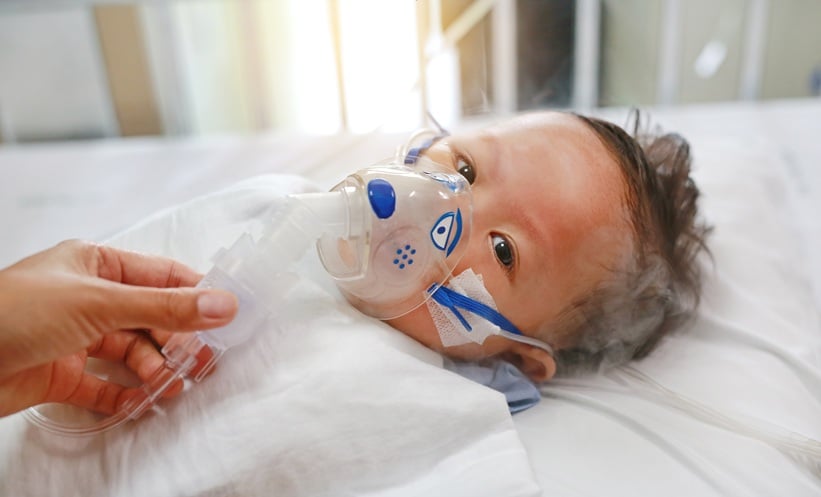EARLY evidence from Catalonia shows that nirsevimab, a new monoclonal antibody, substantially reduced emergency bronchiolitis cases and hospital admissions in infants under 6 months during the 2023–2024 respiratory syncytial virus (RSV) season.
Nirsevimab, designed to prevent lower respiratory tract infections caused by respiratory syncytial virus (RSV), was approved for use across the EU and introduced in Catalonia for the 2023–2024 season. This multinational retrospective study assessed the impact of nirsevimab by comparing emergency department (ED) visits and hospitalisations across 68 hospitals in Catalonia, one in Rome, and four in the UK (Bristol, Leicester, Glasgow, and Edinburgh). Researchers analysed data from May 2018–April 2024, excluding the 2020–2021 season due to COVID-19 disruptions. Using generalised linear modelling with Poisson regression, they calculated risk ratios (RR) for bronchiolitis outcomes in 2023–2024 versus previous years.
Out of over 1.5 million ED attendances and 255,000 hospital admissions analysed, bronchiolitis accounted for 96,028 attendances and 27,691 admissions. In Catalonia, the 2023–2024 season showed a strong decline in bronchiolitis admissions among infants under 6 months, with a RR of 0.52 (95% CI: 0.48–0.55). For hospital attendances in the same age group, the RR was 0.56 (95% CI: 0.54–0.58). Infants aged 6–11 months saw a smaller reduction (RR: 0.93; 95% CI: 0.89–0.97). No significant changes were observed in Rome or the UK sites across any age group.
These findings suggest that nirsevimab may significantly reduce RSV-related hospital burden in the youngest infants. Further monitoring is warranted to assess its impact in older infants and broader populations.
Reference
Perramon-Malavez A et al. Real-world impact of nirsevimab immunisation against respiratory disease on emergency department attendances and admissions among infants: a multinational retrospective analysis. Lancet Reg Health Eur. 2025; DOI: 10.1016/j.lanepe.2025.101334.








